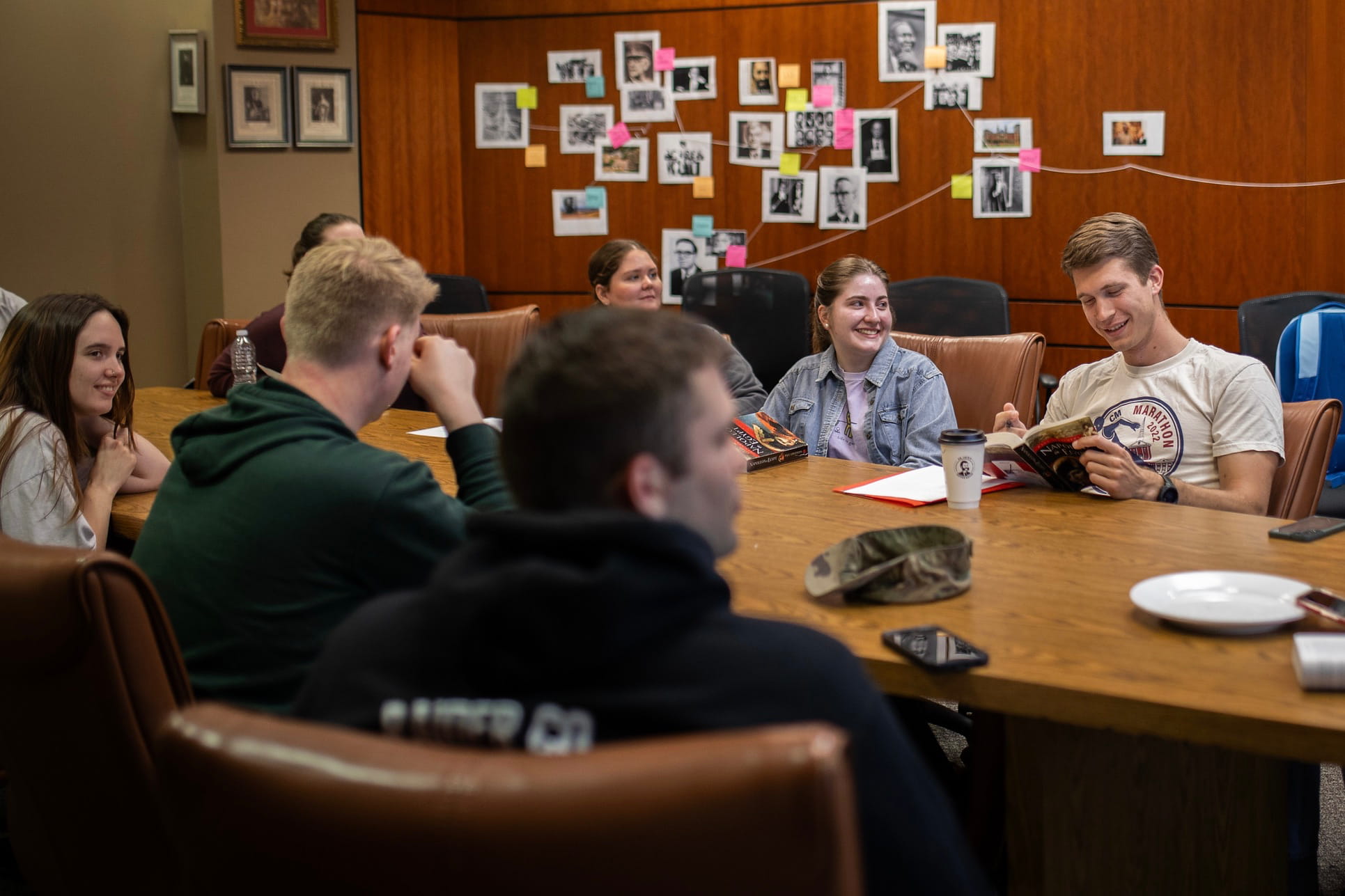Ouachita biology team discovers rare beetle in Clark County
May 16, 2014 - Molly Bowman
Dr. Jess Kelly, assistant professor of biology at Ouachita Baptist University, made
a recent presentation to the Arkansas Academy of Science, making public Ouachita’s
discovery in Clark County of the American Burying Beetle, Nicrophorus americanus,
a rare insect bordering on global extinction.
Four Ouachita students also attended the meeting held at Harding University, including
Tyler Files, whose work was honored in the annual undergraduate student research poster
competition.
Files, a senior biology major from Arkadelphia, Ark., said his research topic was
“Sarcophageous Insect Associations and Succession on Pig Carrion in Central Arkansas.”
He said he and Brianne Baley, a senior biology major from Dripping Springs, Texas,
worked with Dr. Kelly to research and prepare the poster.
“This was my fourth time to present the poster,” Files noted. “I presented at the
Arkansas Capitol and at two INBRE conferences.”
The beetle discovery happened by chance when Dr. Kelly, along with his students who
were part of the J. D. Patterson Student Research Grant program, conducted a forensic
study by placing pig carcasses in designated areas last summer. When the researchers
checked their project, they found that the carcasses had attracted three American
Burying Beetles.
Affirming his interest in the research project, Files said, “I plan to get a master's
degree in wildlife or conservation biology and work with endangered animals. Dr. Kelly
is a great professor to work with and I felt like I could use the knowledge that I
learned about the decomposition process and incorporate it into a future job pertaining
to a career in conservation biology.”
Detailing information about their discovery, Dr. Kelly said there are three known
natural populations of the American Burying Beetle in the world, one in northern Arkansas
and Oklahoma, one in Nebraska and one in Massachusetts. “In the 1800s, this beetle
was all across the United States,” he said. “But when the passenger pigeon went into
extinction about 1900, the beetle began to die as well. We can see that that was one
of their primary foods. It had to adapt to new food sources.
“This is the first time this has ever been seen anywhere in southern Arkansas since
probably 1890, so this is a major find for us.” Kelly added. “We are especially thankful
to the Ross Foundation for allowing us access to some of their lands for this project.”
The researchers reported their discovery to U.S. Fish and Wildlife Services, which
monitors and administers the endangered species program. They confirmed the beetles’
identity and that there was no previous knowledge of the beetle in the area.
Because the beetle is an endangered species, the research program will need to receive
a federal permit in order to continue research with the species. “This could potentially
open the doors for many years of exciting research for Ouachita students in the future,”
Kelly said. “The dream would be for us to receive a permit in order to help monitor
the existing community of the American Burying Beetle and potentially bolster the
species back into full existence in the state of Arkansas.”
In addition to Files, other Ouachita students attending the conference included: Jessica
Ashcraft, a sophomore biology and psychology major from White Hall, Ark.; Sarah Bishop,
a senior chemistry and biology major from Paron, Ark.; and Alyssa Stubblefield, a
freshman biology major from Plano, Texas.
By Molly Bowman
You Also Might Like
Ouachita reports Spring '26 enrollment, led by 50% increase in graduate students
February 11, 2026Recent
Ouachita reports Spring '26 enrollment, led by 50% increase in graduate students
February 11, 2026



